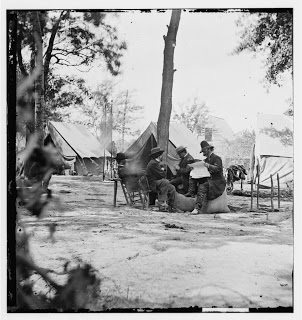Traci Robison's Blog, page 3
February 4, 2012
A Cultural Collection to Inspire You
Last week I came upon a resource I'd like to share. If you're interested in anthropology, folklore, or music history, you'll want to take a look at this.
Folklorist and ethnomusicologist Alan Lomax began making field recordings of southern folklore and music in the 1930s. From the 1960s onward, he focused on comparative research in world music and dance. As a result of his work, Lomax compiled an extensive collection of audio and video recordings and photographs that capture decades of folk culture in the U.S., England, Ireland, Italy, Scotland, Spain and the Caribbean. The Association for Cultural Equity, founded by Lomax in 1983, is custodian of Lomax's archive. On the ACE website you'll find a research center containing digitized items from Lomax's archive as well as teaching resources, which can be a source of inspiration for any lifelong learner. And, the great news is, the digital resources are growing. By the end of February about 17,000 tracks will be available online for free streaming. I know I'll be stopping back.
Published on February 04, 2012 10:22
January 30, 2012
Right now
Where have I been? Mostly, right where I am now--sitting at my desk having a staring match with the computer screen. Well, to be honest, there's been more reading and typing than simple staring. I'm swallowed up in revising Gates the Hours Keep.
The dogs are snoozing in my office. Sadie's stretched out by the closet, and Tali's curled up under my desk. I've opened the curtains to have a glimpse of bright blue sky, and except for the dormant brown lawns, January looks like April. Sometime this afternoon, I'll slip outside and steal some sunshine for myself.
A warm winter should be welcome, but the first winter without my dad shouldn't be so extraordinary. I want dull skies and bitter, biting winds. I want a world of grays and browns, not sprouting columbines and cloudless blue. When I walk the dogs today, the sun will warm my face and I'll think what a rare gift such a winter day is. On days like today I feel more alive. And, then I think of Dad. He would be out tinkering on broken-down machinery or sitting in the tavern praising the warmth but commenting on the dryness.
Days such as today are a gift I can't share with him. No happiness comes without my remembering he's not here. Yet, happiness comes. In friends' smiles and sunshine and smelly dog fur, it comes.
The one good snowfall we've had this winter was Tali's first. Watching her and Sadie play in the snow, I laughed and laughed. Here's a glimpse of that day. I hope it makes you smile.


The dogs are snoozing in my office. Sadie's stretched out by the closet, and Tali's curled up under my desk. I've opened the curtains to have a glimpse of bright blue sky, and except for the dormant brown lawns, January looks like April. Sometime this afternoon, I'll slip outside and steal some sunshine for myself.
A warm winter should be welcome, but the first winter without my dad shouldn't be so extraordinary. I want dull skies and bitter, biting winds. I want a world of grays and browns, not sprouting columbines and cloudless blue. When I walk the dogs today, the sun will warm my face and I'll think what a rare gift such a winter day is. On days like today I feel more alive. And, then I think of Dad. He would be out tinkering on broken-down machinery or sitting in the tavern praising the warmth but commenting on the dryness.
Days such as today are a gift I can't share with him. No happiness comes without my remembering he's not here. Yet, happiness comes. In friends' smiles and sunshine and smelly dog fur, it comes.
The one good snowfall we've had this winter was Tali's first. Watching her and Sadie play in the snow, I laughed and laughed. Here's a glimpse of that day. I hope it makes you smile.


Published on January 30, 2012 09:53
October 10, 2011
Exploring character through valued possessions
 Photo by Timitrius
Photo by TimitriusImagine you have to pack up your home and can only take with you those things that fit in the trunk of your car. Bringing family members along? Then you have to share the trunk space with them. What do you take? What do you do with those things you leave behind? Who decides?
For a while now I've been considering those questions, and I have about a year to come up with the answers. The flowers transplanted from my grandparents' house, the china hutch Grandpa built, the desk I bought during grad school, shelves and shelves of books--those things simply won't fit. The spices in the kitchen cupboard? Those, I ought to bring. Everything I have must prove its worth. Necessity is winning out over sentiment. And, I'm surprised. I've always had trouble letting go of items to which memories are attached--even gifts I don't especially like, I cherish because I love the giver.
This has me thinking about the impact of objects in my fiction. Most often my characters' prize possessions are valued, not for their usefulness, but for their emotional weight. Nothing wrong with that. But utilitarian objects--a hammer, for instance, or a bow--could be even more important to a character.
With that in mind, consider a character from your work and make a list of the five objects most important to him or her. Now, delve into each object. Describe it in depth. How would the character describe it? How would the character explain the object's worth? Is there a story attached to the object? Does it have a history? Where and how is it kept and cared for? What sort of condition is it in? And so on.
At the exercise's end, you will likely have greater insight about the character. You might also have some fresh ideas for the plot or even for an additional story. Let me know how the exercise works out for you!
Published on October 10, 2011 08:58
October 7, 2011
Historic newspapers online--Chronicling America
 Photo from Library of Congress As an archivist, I understand that the majority of archival materials are not digitized or readily available on the web. But, as a writer without the money and time to travel to various archives, I've searched the web for useful, valid sources for historical research. More and more are becoming available, often as a result of institutional collaboration.
Photo from Library of Congress As an archivist, I understand that the majority of archival materials are not digitized or readily available on the web. But, as a writer without the money and time to travel to various archives, I've searched the web for useful, valid sources for historical research. More and more are becoming available, often as a result of institutional collaboration.A website I've been using the past few weeks, Chronicling America, is produced by a partnership between the National Endowment for the Humanities and the Library of Congress. The partnership, known as the National Digital Newspaper Program, is an ongoing project to develop a searchable database of U.S. newspapers and to digitize selected historic pages. Currently more than a million digitized newspaper pages are found in Chronicling America. Digitized newspapers date from 1836-1922 and represent newspapers from all U.S. states and territories. A directory of newspapers from 1690-present is also part of the website, and a list of topics widely-covered topics is included to help guide researchers. (Although most of the listed topics don't relate to my current research, glancing through the topics sparks my imagination. A short story involving the roller-skating craze, maybe? A character who practices yoga in 1905? So many possibilities to explore.)
In a related project, the Rural West Initiative, Bill Lane Center for the American West, Stanford University has produced a database visualization based on Chronicling America. A timeline and US map are combined, enabling users to see the geographic distribution of American newspapers over time. Added filters limit results to newspapers in a particular language. For me, the visualization is interesting, but less useful than the newspaper project itself.
Weekly Newspapers, 1690-2011 from Geoff McGhee on Vimeo.
If you know of some good sources you'd like to share, please feel free to comment or share a link. I'm always looking for more.
Published on October 07, 2011 07:54
October 5, 2011
Found poetry
Play is an important part of creativity. Play frees up the mind, leading to innovation and keeping state of mind from growing stale. Word-play is a fun way to improve, or at least flex, your writing skills.
I've recently been playing with poetry--in particular, found poems. Found poems are created by taking words or phrases from other sources (usually written, but things overheard can also be used) and recombining them as poems. I came across the idea in Getting the Knack, 20 Poetry Writing Exercises. It's the first exercise. I have yet to try the remaining 19. Cutting, re-arranging words, adding or changing punctuation are all allowed by the exercise, but you're not allowed to add your own words to the mix.
Most of what I come up with is utterly abysmal. All of it makes me laugh. Here's one I just wrote, pulling from Henry Taylor's autobiography, From Lead Mines to Gold Fields, Memories of An Incredibly Long Life.
GRASSHOPPERS FOR FOOD
Dig a holethree feet deepthree, in diameter
All women and childrencircle around the holewave willows,advance slow.Drive hoppers to the hole
Go to holewith basketof coarse grass, woven closeFill basketwith hoppers
Boil water,heating rocksPour over grasshoppers
Cook to taste.
Remove rocksDry hopperson grass mat
When dried,pulverize.Add water,stir to mush
Eat as though most luscious food in the world
 Photo by amphioxus Give the exercise a try--come play with me, and share your creation in the comments.
Photo by amphioxus Give the exercise a try--come play with me, and share your creation in the comments.
I've recently been playing with poetry--in particular, found poems. Found poems are created by taking words or phrases from other sources (usually written, but things overheard can also be used) and recombining them as poems. I came across the idea in Getting the Knack, 20 Poetry Writing Exercises. It's the first exercise. I have yet to try the remaining 19. Cutting, re-arranging words, adding or changing punctuation are all allowed by the exercise, but you're not allowed to add your own words to the mix.
Most of what I come up with is utterly abysmal. All of it makes me laugh. Here's one I just wrote, pulling from Henry Taylor's autobiography, From Lead Mines to Gold Fields, Memories of An Incredibly Long Life.
GRASSHOPPERS FOR FOOD
Dig a holethree feet deepthree, in diameter
All women and childrencircle around the holewave willows,advance slow.Drive hoppers to the hole
Go to holewith basketof coarse grass, woven closeFill basketwith hoppers
Boil water,heating rocksPour over grasshoppers
Cook to taste.
Remove rocksDry hopperson grass mat
When dried,pulverize.Add water,stir to mush
Eat as though most luscious food in the world
 Photo by amphioxus Give the exercise a try--come play with me, and share your creation in the comments.
Photo by amphioxus Give the exercise a try--come play with me, and share your creation in the comments.
Published on October 05, 2011 05:00



